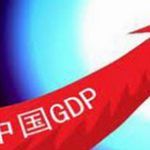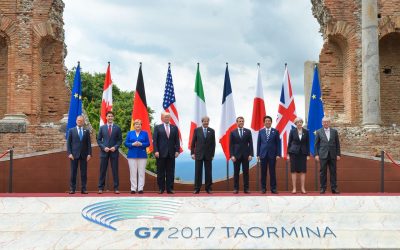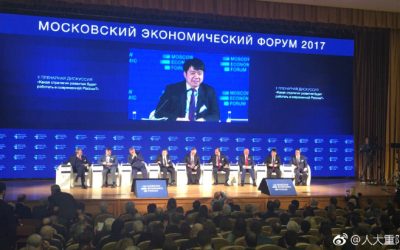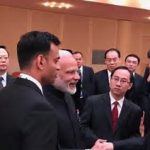By John Ross
Wenhua Zongheng is a newly launched international publication bringing together articles originally produced in the mainland China magazine of the same name in Chinese. It is jointly published in English, Spanish and Portuguese, by Wenhua Zongheng, the Tricontinental Institute for Social Research, and Dongsheng – which produces the newsletter News on China. Most importantly, its appearance is a landmark moment for the entire global left. The reason for this is not only the high quality of the individual articles, which are excellent, but what it signifies for the present and future orientation of the entire international left. It makes available for the first time in a regular fashion, in excellent translations, key analyses from the Chinese left – allowing it to speak with its own voice and not through the interpretation or comments of others. In addition to showing the extremely high level of discussion in the Chinese left, the significance of this can be clearly seen by placing it against the entire trajectory which is reorganising the global left.
The international left after the collapse of the USSR
Prior to the Soviet Union’s collapse in 1991 by far the largest part of the international left had been oriented towards it – as the left’s most progressive forces had been since the Russian Revolution of 1917 led to the USSR’s creation. That position had been sustained by the immense role the USSR played in the defeat of Nazism, in it both inspiring and materially aiding the destruction of the colonial empires, in the practical aid the Soviet Union had given to key progressive struggles internationally, in the vast improvement in the lives of the Soviet people that had been created and many other reasons. The restoration of capitalism in the former USSR in 1991 was therefore an immense defeat for the international working class not only objectively but it also broke up the previous orientation of the largest part of the international left.
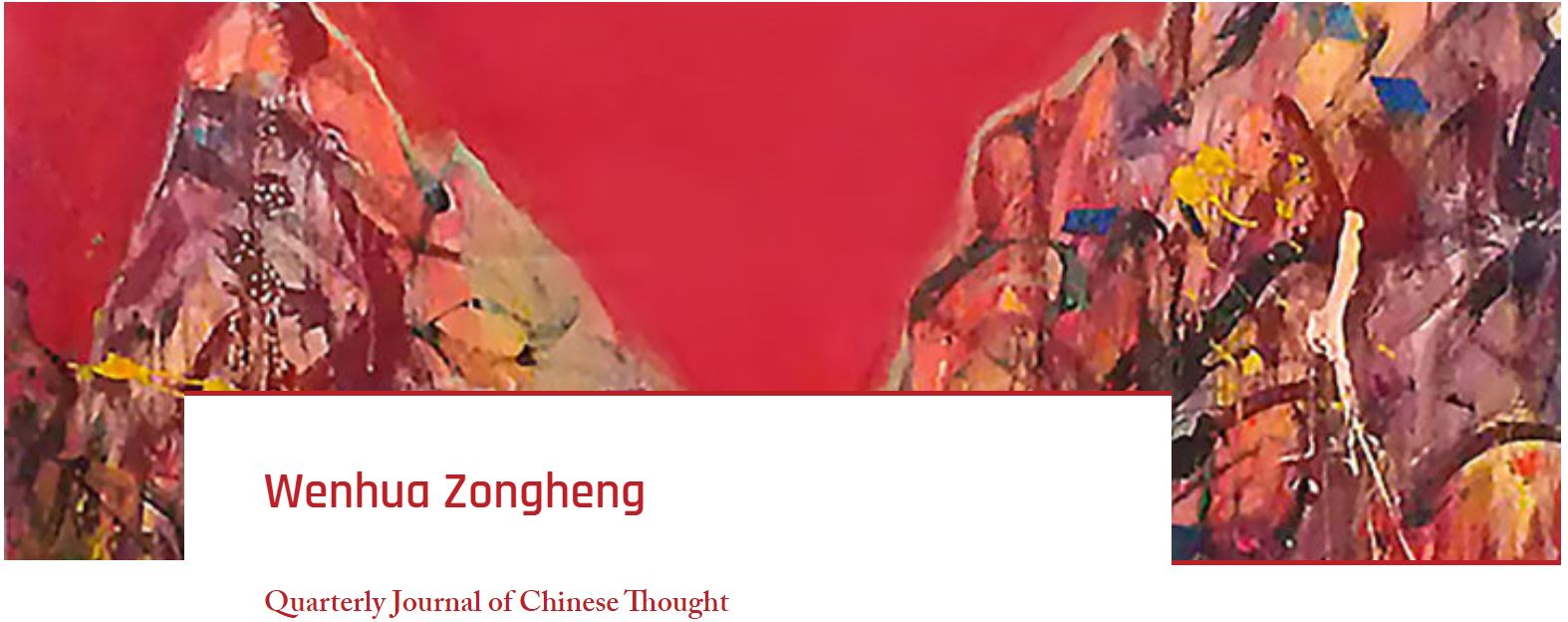
Other socialist countries, including Cuba and Vietnam, certainly still existed. The former was a great inspiration to the left due to its internationalist record since its 1959 revolution, exemplified most dramatically in its critical military aid to the struggle to defeat the South African apartheid regime, Cuba’s integral interrelation with progressive struggles in Latin America and other continents, its enormous domestic medical and other achievements and numerous other measures. Regarding Vietnam, in addition to theoretical understanding, significant parts of the international left also directly grasped its importance from their own experience in the global movement opposing the U.S. war against that country from the 1950s to the 1970s – a formative experience for an entire generation of the global left. But despite their inspiration Cuba and Vietnam were too small to replace the decisive material role in the international struggle which the USSR had played.
The development of China
There was, however, one country which did have much greater and growing material weight in the international situation – China. For a prolonged period, large parts of the international left were hampered in relating to China by an incorrect analysis of the transformations in that country which took place following the death of Mao Zedong and the beginning of the China’s Reform and Opening Up in 1978. During this period, the communications between China and most of the left declined and there was a subsequent dearth of information. The transformations inside China were incorrectly analysed particularly in the imperialist countries, but also more widely, as representing the restoration of capitalism in China.
This analysis went against the Marxist theory of the state. Starting with China’s revolution, it was clear when the capitalist state in China had been destroyed and power transferred to a socialist state – in China’s civil war up to 1949. The fact that the destruction of the capitalist state in China took place via prolonged civil war, in contrast to the short urban insurrection on 7 November 1917 in Russia, did not alter anything of the essence of the matter – in Cuba and Vietnam also power had been transferred to the working class via wars lasting years. To take an opposite process to a revolution, counterrevolution, it was also clear when capitalist power had been restored in the USSR – on 19-21 August 1991 when the Yeltsin led defeat of the move against Gorbachev by the majority of the CPSU’s leaders destroyed the power of that party, which in reality had been the core of the Soviet State apparatus. By 29 August 1991 the activity of the CPSU was suspended throughout the entire USSR and on 6 November Yeltsin banned the activities of the party in Russia. The core of the existing Soviet state apparatus had been destroyed.
The revolutions in Russia, Cuba, and Vietnam, and the counter-revolution in the USSR, therefore confirmed the Marxist analysis of the state as laid out in Marx’s The Civil War in France, Lenin’s State and Revolution, and other works – that the transfer of power from one class to another cannot occur via a simple change in government, the state apparatus of the class which previously held power must be broken.
But if it was entirely clear when socialist state power had been established in China, in 1949 by war, then for those who argued that capitalism had been restored in China, when on earth had that state power been broken in China? The CPC had been in power continuously from 1949 to the present day, the People’s Liberation Army had been the armed forces of that state from 1949 to the present day. When had the transition to capitalism occurred in China and how come no one, unlike in August 1991 in Russia, noticed this breaking of the state created in 1949? The analysis that capitalism had been restored in China was, as it was put in another context, to “run the film of reformism in reverse”. That is, it was a theory that the transfer of power from one class to another could take place by peaceful gradual means on the basis of the existing state apparatus – whether in the direction of capitalism to socialism (revolution) or from socialism to capitalism (counter-revolution).
As those who claimed capitalism had been restored in China could not point to when this transfer of state class power took place, and the former socialist state power had been destroyed, instead they put forward a series of complaints about China after 1978 – that there were was a stock exchange, that China had adopted a bad foreign policy, that there were billionaires, allegedly migrant workers were held in inhuman conditions etc. etc. But whether these claims were correct or false was not decisive, and many were irrelevant, to the question of deciding which class held power in China – that was decided by state power, not by such issues.
Those on the left who recognised that China continued to be a socialist state
While a large part of the international left in the Global North, and to a lesser extent more widely, held such a false analysis of China, it should be stated that a part of that left, in which the present author was included, argued against this. The present author published more than 1,000 articles and books analysing China’s socialist development – some of these are collected in the book China’s Great Road. From 1992-2000 he was living in Russia attempting to persuade it to adopt the Chinese path of economic development. A number of these articles, with others from 1991 to 2018, are included here. From 2009 he was invited to work in Chinese universities and think tanks.
Clearly arguing against any position that capitalism had been restored in China in the Global North were a number of Communist Parties, individuals, publications, and organisations. These included, for example, publications in the leading U.S. socialist journal Monthly Review, and the U.S. Party of Socialism and Liberation, the early part of whose developing analysis can be found in the book China: Revolution and Counterrevolution. Some of these holding these views were critical of the path China adopted from 1978 onwards, some were strongly supportive, but all agreed on the most fundamental issue – that China was a socialist state.
This was the decisive issue. For those supportive of the path China embarked on in 1978 this was obvious, while for those who were critical of it if China was a socialist state then the mistakes they criticised could potentially be corrected – which they could not if capitalism had been restored.
But in line with this development of China as a powerful socialist country, also by far the numerically largest left – using left in the Western sense – of any country in the world developed in China. Apart from state media, this left also developed important publications and media. Among the most significant of these were Guancha.cn, certainly the most read non-state left wing website in the world, with articles regularly receiving hundreds of thousands of hits and with 19 million followers on weibo, the Chinese equivalent of Twitter. Another was the bimonthly Wenhua Zongheng magazine itself. In addition, a significant number of left-wing writers had millions of followers on weibo, social media and other publications.
China begins to reshape the international left
While the debates referred to outside China were of the utmost importance theoretically, given China’s weight in the world, nevertheless they at first seemed extremely abstract, without decisive practical importance, in major parts of the world. The author remembers being told in the 1990s in Russia, by people who should have known better: “Why are you so interested in China? It is a very poor country. Russia has nothing to learn from China.” My response was “China is socialist. Its economic policy is correct from the point of view of Marxist theory. Therefore, it will be a tremendous success. If you are not convinced now just wait and see.”
In the West the response was also very frequently “Why are you going on about China all the time”. My response: “The development of China is enormously more powerful than anything in the left in the Global North. It will remake the entire international left.” That is what is now happening and of which the publication of the international edition of Wenhua Zongheng is a qualitative landmark.
Rather than summarise the articles in in this issue of Wenhua Zongheng, for reasons analysed below its significance is precisely that it allows the Chinese left to express itself in its own words, so the original should be read, what will be analysed here is the process which led to the international publication of the journal and what it means in terms of the dynamic of the global left.
Developments in the Global South
The focus of this first international issue of Wenhua Zongheng is the relation of China and the Global South. This is crucial because in the Global South a different and more powerful process was taking place than in the Global North. The interrelation of China with this is summed up in the lead article of this issue of Wenhua Zongheng by the quotation “China’s historical destiny Is to stand with the third world” by Yang Ping, Wenhua Zongheng’s editor in China.
At a theoretical level this is a restatement of the fundamental strategic analysis of Lenin. In the words of his address to the Congress Of Communist Organisations of the Peoples Of The East: “the socialist revolution will not be solely, or chiefly, a struggle of the revolutionary proletarians in each country against their bourgeoisie – no, it will be a struggle of all the imperialist-oppressed colonies and countries, of all dependent countries, against international imperialism… we said that the civil war of the working people against the imperialists and exploiters in all the advanced countries is beginning to be combined with national wars against international imperialism. That is confirmed by the course of the revolution, and will be more and more confirmed as time goes on.” But, in addition to this fundamental strategic conclusion, the analysis of the first issue of Wenhua Zongheng also corresponds to the present situation of the left internationally.
After the immediate impact of the collapse of the USSR, and developing initially largely independently of developments in China, strongly divergent trends began to appear in the left in the Global South (in this context not including China) and the Global North – the imperialist countries.
In the Global South, particularly in Latin America, a strong upturn of the left began with the victory of Chavez in the December 1998 Venezuelan presidential election and the defeat of the right-wing coup in that country of 2002. This was followed by the “pink tide” of left-wing victories and left wing forming of governments in Argentina, Bolivia, Brazil, Ecuador and other countries. Then, after 2014, there were defeats in Brazil, Ecuador and other countries. But by the early 2020s a clear new upswing of the left was taking place – with the defeat of the regime established by the 2019 right wing coup in Bolivia, victories for left wing candidates in Mexico and Colombia, the re-election of Lula to the presidency in Brazil and other developments.
The left and the issue of China
These left-wing currents, particularly but not exclusively those in government, were however immediately practically confronted with at least two decisive aspects of China. First, China’s enormously successful economic development made it a decisive trading partner, and potential source of investment, for the Global South – for many Global South countries China, not the U.S. was their largest trading partner. Second China’s gigantic social achievements – lifting over 850 million people out of internationally defined poverty, 70% of those lifted out of poverty in the world, the fastest increase in wages and consumption of any country in the world, a life expectancy which by 2022 was higher than the U.S., going in only just over 70 years from almost the world’s poorest country to the brink of high-income status by international classification – were precisely the types of development they wanted for their own people. These achievements were also so obviously in the interests of the ordinary people of China that it showed in a dramatic fashion the practical benefits of socialism. For these reasons the left in the Global South became more and more interested in, and favourable to, China. They were also strongly against the current U.S. aggression against China – the “new cold war”.
In the Global North, on the contrary, overall, a series of defeats continued – symbolised, at the most mass level, by the defeat of Bernie Sanders in the contest to be Democratic Party candidate for President, the ousting of Corbyn as leader of the Labour Party, the weakening of Die Linke in Germany etc.
These positive developments in the Global South naturally sought links with each other and the systematic organisation of such relations. Aside from the state-to-state relations of various progressive governments, the most publicly developed of these organisations was the creation of the Tricontinental Institute for Social Research, whose Director was Vijay Prashad, and the International People’s Assembly. Based on the most dynamic and largest part of the left outside of socialist countries, the Global South, these organisations have increased in influence – Prashad has become probably the most influential Marxist author not in a socialist country. Tricontinental is the publishing partner for Wenhua Zongheng in the new international publication.
The international edition of Wenhua Zongheng
Even before this publication of the international edition of Wenhua Zongheng there were interconnections between the left in China and forces outside it. There was, in the state media produced in China in foreign languages, of course expressions of the key positions of the Chinese leadership. Going in the other language direction, there were a small number of non-Chinese progressive authors who were regularly published in China and had significant readerships there. The international No Cold War campaign in the last three years had brought together significant forces opposed to U.S. policy to China, had linked these to forces in China and had received significant publicity in China. Dongsheng had on a weekly basis been bringing together for a non-Chinese audience key material on and produced by China – unlike Wenhua Zongheng this was chiefly material published in English. There was also some, but very limited, amount of translation of significant figures on the left in China, outside of the state leadership, into non-Chinese languages. Given the development of modern translation software it was also possible for anyone who wanted to follow the discussions online in China to do so.
But while the international edition of Wenhua Zongheng follows on from these developments it is a great step forward because it is a regular, institutional, place in which an important part of the Chinese left can explain its analyses internationally. This, therefore, creates a far more systematic understanding of and dialogue internationally with the broader left in China. Given that by far the largest and most dynamic progressive forces outside China were in the Global South it was entirely logical that it was only the interaction of the Global South with the Chinese left that would bring sufficient forces to bear to create such a structured ongoing dialogue between the left inside China and the left outside China.
This is what the creation of the international edition of Wenhua Zongheng signifies and why it is a qualitative landmark for the international left. For the first time there is an ongoing structured institutional mechanism for making some of the key publications of the progressive Chinese intellectuals available to a non-Chinese audience. In addition, the goal is to enable Global South commentary on the articles and topics available to Chinese readers of Wenhua Zongheng.
The interaction of the Global South, China and the Global North
Of course, not only the Global South is engaged in this dialogue with the Chinese left. Naturally, and fortunately, not all of the left in the Global North went backwards. Some figures resolutely stood against the U.S. aggression against China even when, in some cases, they had disagreements with it – Noam Chomsky and Yanis Varoufakis to name only two of the best known. Some other parts of the Western left took a stance understanding the enormous achievements of China. The leading U.S. socialist magazine Monthly Review, unlike its British counterpart New Left Review (NLR), linked itself to and reflected these new progressive forces – NLR, in contrast, has been featuring reviews with supporters of capitalism in China, pro-U.S. separatists in Hong Kong etc. This is a continuation of a fundamental misunderstanding of international forces that led one of NLR’s editors to dedicate their book on Russia to Yeltsin – the person who then went on to restore capitalism in Russia.
As a result, already some networks of republications had been created between Monthly Review, Tricontinental, and Guancha.cn. Initially, both to the shame of the Western left, and for historic reasons, there are far more socialists in China who speak foreign languages than socialists and progressives in the West who speak Chinese. Therefore initially, regrettably, these republications went more from foreign languages to Chinese than the other way round, Guancha.cn published translations of a number of non-Chinese left wing authors into Chinese – some were written originally for a “Western” audience and some specifically for a Chinese audience. Monthly Review made a number of these articles available in English and Tricontinental had also published a number of these articles outside China. Recently the book Washington’s New Cold War: A Socialist Perspective, drawing together analysis of the reasons the U.S. had launched its new policy of aggression against China, had also been published in English and Chinese as well as Portuguese, Spanish and Korean. So, up until now, the left in China had much better knowledge of the left outside China than vice versa. The issue of making material from China available outside China is dealt with below.
The significance of the international edition of Wenhua Zongheng
Under the impact of global events the left outside China is progressively dividing into two parts. That which has a fundamentally favourable analysis of China, which of course does not exclude criticisms, and that part which is fundamentally hostile. A few forces attempt to avoid the issue, for example holding up the Latin American left as the example to be followed while ignoring China – a position which becomes increasingly untenable given that the Latin American left itself is consciously seeking good relations with China.
So the international edition of Wenhua Zongheng was very far from springing from nowhere. But it was a big step forward in a process that was underway. The Chinese state obviously has the resources to make the views of its leaders known in foreign languages. But, as already seen, there is an enormous left in China, the world’s largest, which has its own network of publications and its own intense discussions – the idea that China is some sort of monolith is a ridiculous caricature simply put out by anti-socialist propaganda in the West. But, given the shortage of Chinese language resources in the West it was a difficult task, requiring serious resources, to make this debate available outside China in first class translations. Inevitably, given that the left in the Global South is much bigger and more politically significant than the left in the Global North, and the interest in alternative models of modernization is needed in the Global South, it was forces from the Global South which had the resources to undertake that task. This is why the international edition of Wenhua Zongheng is a joint publication between that Chinese magazine, the Tricontinental Institute for Social Research, and Dongsheng.
This also makes clear why this publication of an international edition is a true landmark event in taking the process of dialogue between the left inside and outside China forward. It means for the first time, as noted, that on a regular basis, the views of key parts of the Chinese left are available in their own words. Anyone who reads the first issue will already get an idea of the extremely high level of analysis in China.
The dynamic of the international discussion for socialism
The dynamic which is now taking place is clear. The international left is being reshaped by this interaction between China and the world. This now increasingly includes a dialogue between the Chinese left and the left in the Global South – the two parts of the international left which are advancing. Forces in the Global North are either relating to this process, and going forward, or not relating to it and at best are increasingly bypassed or at worst are going backwards, emphasising anti-China position etc. Given the fundamental global forces which are operating this process will continue to deepen.
Naturally, because the interaction of the left inside and outside China is still only just in its first stages there are many issues to be discussed. As the two have developed for a prolonged period with entirely insufficient contact with each other, it is entirely unrealistic to believe that at the beginning of this process there will not be misunderstandings, lack of knowledge, differences etc Two conditions, at least, are necessary to deal with this situation.
First, at all times, to use China’s terminology, these discussions must be regarded as “contradictions among the people” not “contradictions between the people and the enemy”. That is, they are differences among those attempting to take progressive steps forward. Indeed, in a wider sense, the most fundamental practical divide of all is between those who oppose the U.S.’s aggression towards China and those who did not – China, as well as international progress, needs all those who oppose such aggression to work together regardless of whether or not they agree with China, either in whole or in part. To seek to unite purely “pro-China” forces is not the most effective aid to China, to the international left, or human progress. But among those who were supportive of China’s course, also, it is necessary to carry out a calm discussion and at all times to act consistently with a framework of “contradictions among the people”.
Second, in that framework, it is necessary to have a correct, that is medium/long term, time framework for such discussion. In addition to the fact that different experiences in the left outside China, and the left inside China, would itself necessary create differences even among these currents themselves, this was even more the case when the Chinese left, and the non-Chinese left, had such insufficient contact for a prolonged period. Many people will have views on such differences. It is completely utopian to believe that such misunderstandings, differences etc could be overcome, or in some cases even accurately formulated, rapidly. This is a discussion with a timeframe of years, not a few months. But for success the first precondition was to establish the best possible channels of communication. And, for getting the views of a key part of the Chinese left to a non-Chinese audience the launching of the international edition of Wenhua Zongheng is a decisive step forward. Now the non-Chinese left can read directly what key parts of the Chinese left are discussing and their views.
For anyone who wishes to follow the most advanced discussions in the international left therefore the international edition of Wenhua Zongheng is indispensable. Those who do not read it will not be informed of key positions of the largest left in the world – that in China. That is why the launch of the international edition of Wenhua Zongheng is more than a simple publication. It is a landmark event for the whole global left.


